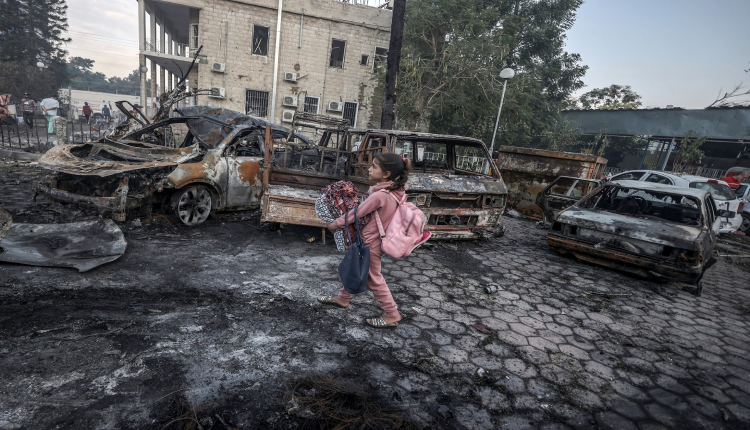Gaza ‘most dangerous place in the world to be a child’ – UNICEF
The Gaza Strip is the “most dangerous place in the world to be a child,” the head of the United Nations children’s agency UNICEF said on Wednesday.
UNICEF Executive Director Catherine Russell told the UN Security Council that more than 5,300 Palestinian children had reportedly been killed.
Israel has focused its retaliation on Gaza, a territory of 2.3 million people.
“The true cost of this latest war in Palestine and Israel will be measured in children’s lives – those lost to the violence and those forever changed by it.” Russel, who last week visited Gaza, said at a council briefing on women and children there.
“Without an end to the fighting and full humanitarian access, the cost will continue to grow exponentially,” she added.
Israel has bombarded Gaza from the air, imposed a siege, and performed on-ground operations.
“The Gaza Strip is the most dangerous place in the world to be a child,” Russell explained. “In Gaza, the effects of the violence perpetrated on children have been catastrophic, indiscriminate, and disproportionate.”
Israel agreed on Wednesday to a ceasefire with Hamas for four days to let in humanitarian aid and free at least 50 hostages held by militants in exchange for at least 150 Palestinians imprisoned in Israel.
Israel claims that Hamas exploits children
Ambassador Gilad Erdan of Israel to the UN repeated long-standing accusations that the UN is biased against Israel and accused Hamas of abusing children in Gaza for years.
“Make no mistake as soon as the pause ends, we will continue striving towards our goals with full force,” he said. “We will not stop until we eliminate all of Hamas’ terror capabilities and ensure that they can no longer rule Gaza and threaten both Israeli civilians and the women and children of Gaza.”
Hamas denies operating from places such as hospitals in Gaza and denies using civilians as human shields.
U.N. Secretary-General Antonio Guterres hailed the ceasefire agreement as “an important step in the right direction, but much more needs to be done to end the suffering.”
The head of the U.N Population Fund (UNFPA), the world body’s sexual and reproductive health agency, told the Security Council there are 5,500 pregnant women expected to give birth in Gaza in the coming month.
“Every day approximately 180 women deliver under appalling conditions, the future for their newborns uncertain,” said Executive-Director Natalia Kanem, adding that UNFPA was also worried about some 7,000 women who gave birth over the past 47 days and lack access to care, water, sanitation, and nutrition.


